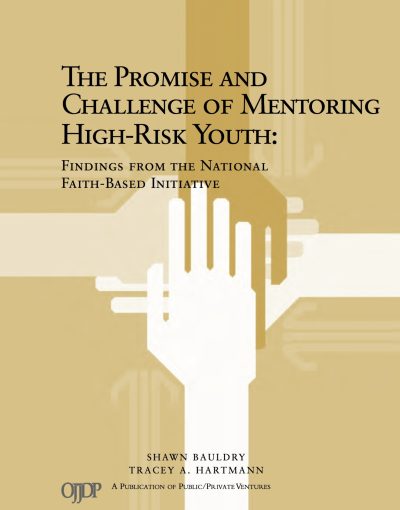A Difference Maker
The most successful mentorship programs — sites where mentors engaged in longer matches and did a better job of retaining older and higher-risk youth — spent more time offering intensive case management.

This report leverages the experiences of four faith-based organizations that developed mentorship programs aimed at supporting older, high-risk youth. Readers will explore data-driven findings, moves to make and challenges to consider when designing similar programs that connect caring adults with youth whose lives have veered off track.
This report explores the work of four sites — Bronx, Brooklyn, Philadelphia and Baton Rouge — that developed mentoring programs as part of the National Faith-Based Initiative for High-Risk Youth. While the design and service offerings differed across the four programs, they all sought to address two key issues: 1) the inappropriate faith-sharing by the mentors; and 2) the greater needs — and greater barriers to successful development — facing high-risk youth.
We hope you'll find value in this report. We’d love to get a little information from you, which we'll use to notify you about relevant new resources.